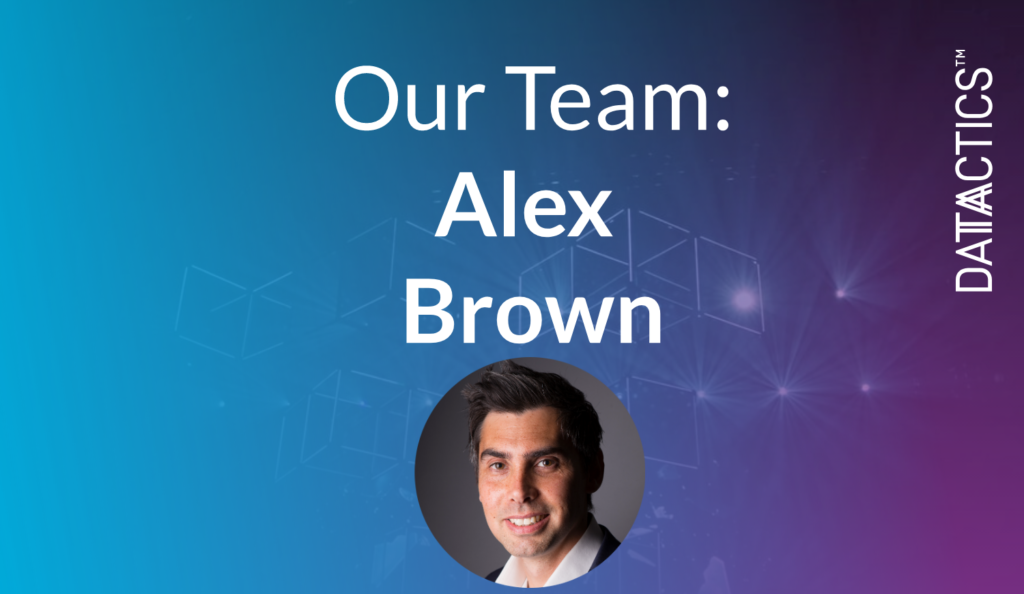You may be used to reading Alex Brown’s (Our CTO) blogs across our social channels. We thought we would sit down and chat about how he came to work in Datactics; his motivations and his passion for technology. Let’s jump right in…

Hi Alex, maybe you can start us off by telling us how you got involved in Technology in the first place?
I’ve always been curious about how things work. After school, I began by studying a BSc Hons in Physics at Queens University Belfast before heading on to an M. Phil in Astrophysics. But astrophysics is not all looking through telescopes! It is mostly crunching and analysing huge amounts of data. It was this that sparked my interest in IT, and the reason why I wanted to pursue a career in Software Development. I did realise that as I progressed, I naturally fell into a technical business rolem where I could translate the business problems into technical solutions, and technical challenges into business and operational impacts.
I felt like I enjoyed the communication element of software development rather than being a software developer myself. Although I am by no means an extrovert, I was keen to become the communicator between the software development team and the key decision-makers. The role has become increasingly important. (although I do occasionally like to get my hands dirty with code!).
Tell us Alex, what do you enjoy most about working within technology?
It has to be the ability that technology has to make a difference to society. That is one of the reasons I was attracted to Datactics in the first place. The areas I am particularly interested in are data quality and its impact on business and society; responsible use of AI; and making sense of the myriad of rapidly evolving data technologies that we’re bombarded with today.
What would you say is your biggest achievement?
Personally, my biggest achievement is transitioning from a scientific background to entering the dynamic world of software development and commercial technology. Although it was a childhood dream to be a scientist, I had to concede that I was not cut out for academia and my strengths were more aligned with business. As someone who wants to make a difference, I particularly enjoyed working on our RegMetrics, AML and LEI matching products, each of which contributes to a safer banking system in its own way.
What is the topic you’re most passionate about, Alex?
I’ve recently become very interested in the application of AI. Both in terms of the enhanced functionality for Datactics products, and in the wider ethical challenges that AI presents when implemented in policing, government and financial services.
I really enjoy writing blog pieces and contributing to webinars. But I always relish the opportunity to write something that demystifies technology hype or has a concrete pragmatic angle!
As many data professionals will know, many AI projects fail to make the crucial transition from experiment to production, for a wide range of reasons. On that point, I have recently compiled a piece that addresses the 3 pillars of production AI.
In this piece, I unpacked many cases, These include the triple investment of money, training and the time being deemed too big of a risk to take. Specifically, some core features such as explainability (XAI) that I believe will be essential to ensure production AI solutions adhere to best practices and potentially, to comply with future regulations.
If you want to read more from Alex feel free to check out his most recent article here. You can also follow Alex on LinkedIn.
Alex Brown is the Chief Technology Officer at Datactics. Prior to this role, he was the former Head of Dart Development at Vela (previously known as SR Labs). Additionally, he was a Market Data Technical Consultant at NYSE Euronext. On top of this, Alex has a combined total of 15 years’ experience within the software development and technical innovation sectors.

